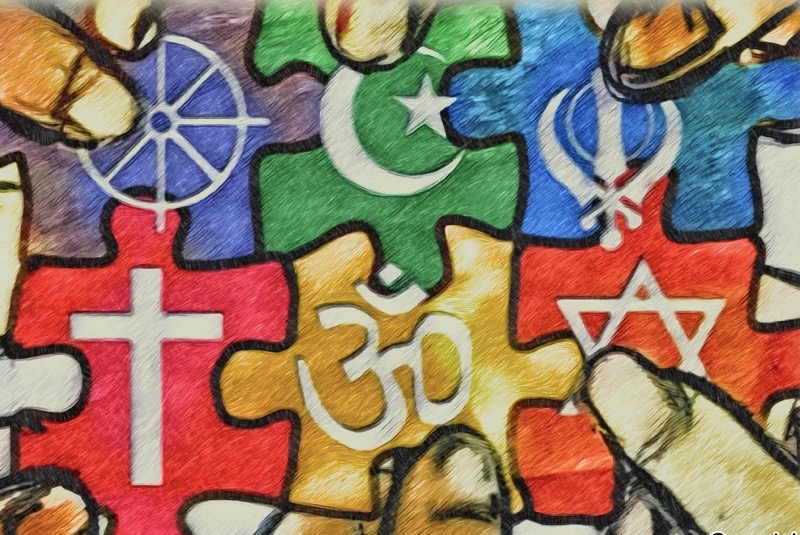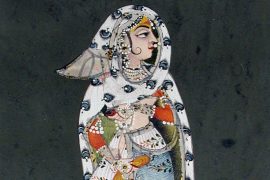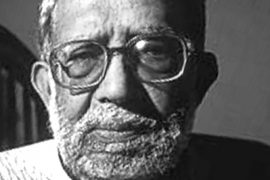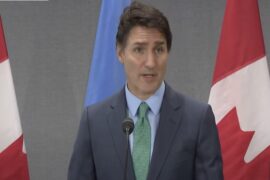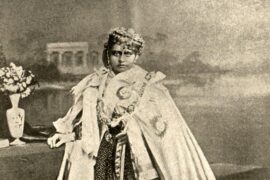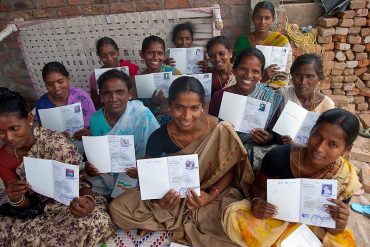The Peace Of Westphalia, a series of treaties signed in 1648, was a monumental event in ascertaining the territorial sovereignty of two Westphalian states of Osnabruck and Munster from the Holy Roman Empire. It ended the Thirty Years War, a catastrophic period in medieval European history that laid down the first principles of international relations. The historic treaties also heralded a commendable attempt to decouple religion from politics by diminishing the intrusive role of the Catholic Church in body politic.
In the last decades of the twentieth century, there has been a strong resurgence of religion in global politics, which was kept at bay for a few decades after World War II since the establishment of the United Nations. Globally, secular nationalism, inspired by the ideals of Enlightenment—the dominant theme of nation-building post World War II—is quickly retrogressing into ethno-nationalism and occasionally morphing into religious extremism. It is jeopardising the idea of egalitarianism and sabotaging the principles upon which liberal and secular democracies are built. Since 1989, religion has been making significant inroads into global politics, especially after the fall of the Berlin Wall and the disintegration of the Soviet Union.
While the upturn of religion in international relations is explicit and pervasive, its causes are often complex and multidimensional. In India, it is attributed to the rise of the BJP under incumbent Prime Minister Narendra Modi. Mr Modi is a lifelong member of the RSS, an organisation that aims to create a monolithic Hindu Rashtra (Hindu Nation) commensurate with the ideology and teachings of its founder, M.S. Golwalker.
The BJP and the RSS are inspired by the xenophobic vision of Gowalkar, who had promoted a militant form of cultural nationalism (in the late 1930s) in his controversial book, We Or Our Nationhood Defined. Championing the exclusivity of Hindus in India’s social fabric, he said:
“The foreign races in Hinduism must either adopt the Hindu culture and language, must learn to respect and hold in reverence Hindu religion, must entertain no idea but glorification of the Hindu race and culture, i.e., of the Hindu nation and must lose their separate existence to merge in the Hindu race, or may stay in the country, wholly subordinate to the Hindu nation, claiming nothing, deserving no privileges, far less any preferential treatment- not even citizen’s rights.”
Golwalkar was heavily influenced by Adolf Hitler and admired the slanted Nazi propaganda of the Aryan Supremacy Theory. He sought to replicate it in the Indian subcontinent, with chronic hatred for Muslims as the imagined enemy of India, akin to the Jews in Germany. The atrocities against Muslims since BJP’s ascent to power in 2014—characterised by mob lynchings on account of alleged possession of beef, propaganda of Love Jihad, morphed images and deep fakes of Muslim sacrileges on Hindu temples, and public exhortation of BJP lawmakers to eviscerate Muslims from India—is a testament to reorganise the idea of India, congruent to the RSS charter.
The BJP and the RSS invoke Hindu supremacy—aided by a romanticised notion of a glorious Indian civilisation—to vehemently ascertain Hindu superiority. They denigrate Muslims in India as descendants of ‘invaders’ who marauded Delhi. Hindutva, they claim, is a reclamation project for Hindus from the cultural and secular corruption it suffered from millennia-long invasions and amalgamations.
Such supremacist objectives are sought in the neighbouring countries in the Asian subcontinent and South East Asia, too. In Sri Lanka, Bodu Bala Sena, an ultra-nationalist group, was patronised by the Rajapaksas—the dynastic political family—to revive and insulate the Sinhalese Buddhist population. The group acts as a watchdog to deter the growth of other religions, targeting the Hindu Sri Lankan Tamils and discriminating against Muslims. The ostracisation and persecution of Rohingya Muslims by the Myanmar military and militant Buddhist monks, culminating in the genocide of 2017, is another classic case of a resurgence of militant nationalism, fanned by religious symbols, culture and identity to subjugate people of minority faiths as the ‘other.’
In Pakistan and Afghanistan, the rise of radical and militant Islamic groups in the 1980s was linked to the concerted efforts of the CIA and the Saudi rulers. The realpolitik motive was the battle against communism and to curb the growing influence of the USSR in the region. The United States armed and nurtured Afghan Mujahideen resistance fighters and radical Islamist groups; Osama Bin Laden was one of the radicals recruited to fight the Soviet occupation of Afghanistan. Bin Laden was armed with US-made Stinger missiles, cutting-edge firearms and ammunitions and was trained in guerrilla warfare by the ISI and MI6, with the patronage of the CIA.
Radical Islamic literature, printed in the University of Nebraska, was shipped to Afghanistan and Pakistan, paving the way for the dissemination and entrenchment of a radical and insular Salafi version of Islam in these countries. This engineered ideological shift supplanted the liberal and peaceful Sufi Islamic culture in Pakistan and Afghanistan, punctuated by the Barlevi Movement.
Radical Islam was weaponised to orchestrate a string of judicial and extra-judicial killings; anti-blasphemy laws were used to target and persecute minority Hindus, Christians and Ahmadiyya Muslims. In Afghanistan, radical Islamisation created the ultra-conservative Taliban, which also sought supremacy by permeating and reinforcing Pashtun nationalism over other communities.
In Turkey, Tayyip Ergodan and his AK Party have formed a nexus with conservative Islamist leaders to adopt an imperial foreign policy aligning with an imagined ‘glorious’ Ottoman Empire, eschewing secular ideals and structures.
Similarly, in Israel, Benjamin Netanyahu references the Tanakh to lay claim to the Holy Land. How could a four-thousand-year-old religious text be presented as evidence before international law claiming ownership of lands that Palestinians legally occupied before the Nakba? It defies sound judgment and logic.
Netanyahu has the backing of the Christian Zionist movement in the United States, whose adherents fervently believe Israel’s homecoming is the fulfilment of Biblical prophesies. They are convinced that this Jewish restoration is inevitable before the consummation of history.
In the United States, a country which claims to be the cradle of liberal democracy and a paragon of a secular, pluralistic society, Christianity has been evoked as a civilisational identity marker rather than faith ever since the election of Donald Trump in 2016.
He capitalises on the unwavering support of the white evangelical and catholic population, especially those in the American Midwest. White supremacist groups, like the Three Percenters, sprung up in 2008, claiming only three per cent of the colonists, exclusively whites, who led the revolutionary struggle against the British and won American Independence.
These fissiparous forces envision an empire building through the ideological convergence of religious nationalism with white nationalism, claiming prerogatives to administrative rule. They believe that America is blessed by God and entrusted with a lynchpin role to play for humanity across the world. This toxic intersection of religion and politics reached a crescendo when insurgents stormed Capitol Hill in 2020; they raised a wooden cross with a banner emblazoned with words, “Jesus is my Savior, Trump is my President.”
They are less concerned if Trump is a deeply flawed man, for their contention is that God chooses the imperfect and the anonymous, just as King David, despite being a lecherous and murderous convict, found God’s favour to rule over the twelve tribes of Israel. They abhor multilateral institutions like the UN, which, they believe, is ‘infested’ with people of multiple faiths other than Christianity and despise subjugation to such authority. They subscribe only to the Holy Bible to suit their political interests, are hostile to immigrants, are anti-gay and oppose LGBTQ rights, frown upon gender equality and detest loving thy neighbours of colour.
In Russia, Vladimir Putin has emerged as the custodian of the Russian Orthodox Church. Lost in the wilderness during Communist rule, Putin believed that reviving Russian Orthodoxy was central to rehabilitating Russian masculinity, which he also pontificates as the spiritual security of the nation.
Demagogues and populist leaders across Europe have narrowed their realpolitik strategy to the potential force of invoking religion as the core identity and civilisational marker to influence and sway the electorate for political gains. Religious identity—dissociated from religious belief and practice based on the scriptures—has regressed into a tool for authenticating national belonging and pride.
Radical right-wing parties have mushroomed across Europe, and their dominant theme is of exclusivity—of lost civilisational and racial glory—pushing anti-immigration policies, economic autonomy and reclaiming national sovereignty from the European Central Bank shenanigans in Brussels.
The imagined enemies are Muslims; the threats posed by Islam are the overriding theme of these crafty politicians. Muslim immigrants are called a ‘security risk’ and accused of non-integration into mainstream life. The ultra-conservationists have even sought the help of Donald Trump’s former chief strategist Steve Bannon to oust Pope Francis, known for his pro-immigration statements and his warnings against nationalism and unbridled capitalism.
The Eurosceptic, Respect, British National Party and UKIP in the UK, Alternative fur Deutschland (AfD) populist party in Germany, Lega Nord in Italy, Austrian Freedom Party, Swiss Peoples Party, Party for Freedom in the Netherlands, National Rally in France, Jobbik and Fidesz in Hungary are all populist parties with a charter denouncing globalisation, immigration and secular-liberal social systems.
Viktor Orban of Hungary wishes to replace secular democracy with Christian democracy. Marine Le Pen, the controversial far-right leader of France, is a hardliner opposed to immigration, multiculturalism and globalisation. The Law and Justice party and the far-right Confederation Alliance in Poland that won the 2015 national elections have been relentlessly promoting a xenophobic campaign against non-European immigrants, mainly from the Middle East, as terrorists on account of ethnic, religious and racial divergences.
Though globalisation has resulted in seamless trade and commerce, people-to-people movements, internationalisation of production, global supply chains, income levelling in emerging markets and raising absolute living standards, it is often portrayed as the malefactor for exacerbating global inequality. Several empirical studies from the world’s leading research and economic agencies have ratified rising inequality due to offshoring value chain activities and manufacturing; the US is a classic case.
Christian socialists like the legendary British economist Maynard Keynes advocated a welfare state centred on the first principles of social democracy and government intervention. The welfare state replaced the need for God in material dispensation, since government was the major employer across European federation where healthcare and education were either free or heavily subsidised.
Subsequently, liberalism, intellectualism, rational discourse and scientific temper diminished religiosity and church membership, and church-goers dwindled across Europe and the US. Basilicas and magnificent cathedrals had few patrons, and weekly attendance plummeted in parishes and dioceses.
Religion was scoffed at, and its adherents were categorised as having lower intellect in scientifically advanced Western societies. The New Atheism movement began spreading across the world, and the best intellectual position without being dishonest was to become an agnostic.
Neoliberalism and free market economics, propounded by the advent of the Mont Pelerin Society and neoliberal economists like Frederick Hayek and Ludwig Von Mises of the Austrian School and Milton Friedman and Eugene Fama of the Chicago School, sounded the death knell for religion. The market was sovereign, and the invisible hand of the market, instead of the government, determined the destinies of individuals and corporations.
Nothing should interfere with free markets, not even God. However, neoliberal capitalist systems have largely failed in the US, resulting in widespread income and wealth inequality, diminished real wages, a widening productivity pay gap, and growing disenchantment among the middle class. The top one per cent amassed thirty per cent of the wealth generated, and the top ten per cent accounted for sixty-seven per cent of total wealth.
Social ostracisation of religious communities and social inequality are two powerful and compelling propositions for the rise in populism and demagoguery in the Western world. Infusion of religion in politics to define identity that in turn engenders ethno-nationalism and religious extremism poses a substantial threat to secular democracies around the world.
As Nelson Mandela rightly observed, change can be affected only partially by talking to followers and sympathisers but entirely by talking to opponents, traducers, and critics. At the fag end of the nineteenth-century, Friedrich Nietzsche’s madman stormed into the marketplace declaring “God is dead”.
He was indeed buried under the neo-moral, neoliberal, secular and progressive ideologies for a while. However, God and religion have resurrected in global politics, and only time will vindicate the repercussions and ramifications of a seemingly God’s century.
-30-
Copyright©Madras Courier, All Rights Reserved. You may share using our article tools. Please don't cut articles from madrascourier.com and redistribute by email, post to the web, mobile phone or social media.Please send in your feed back and comments to [email protected]

